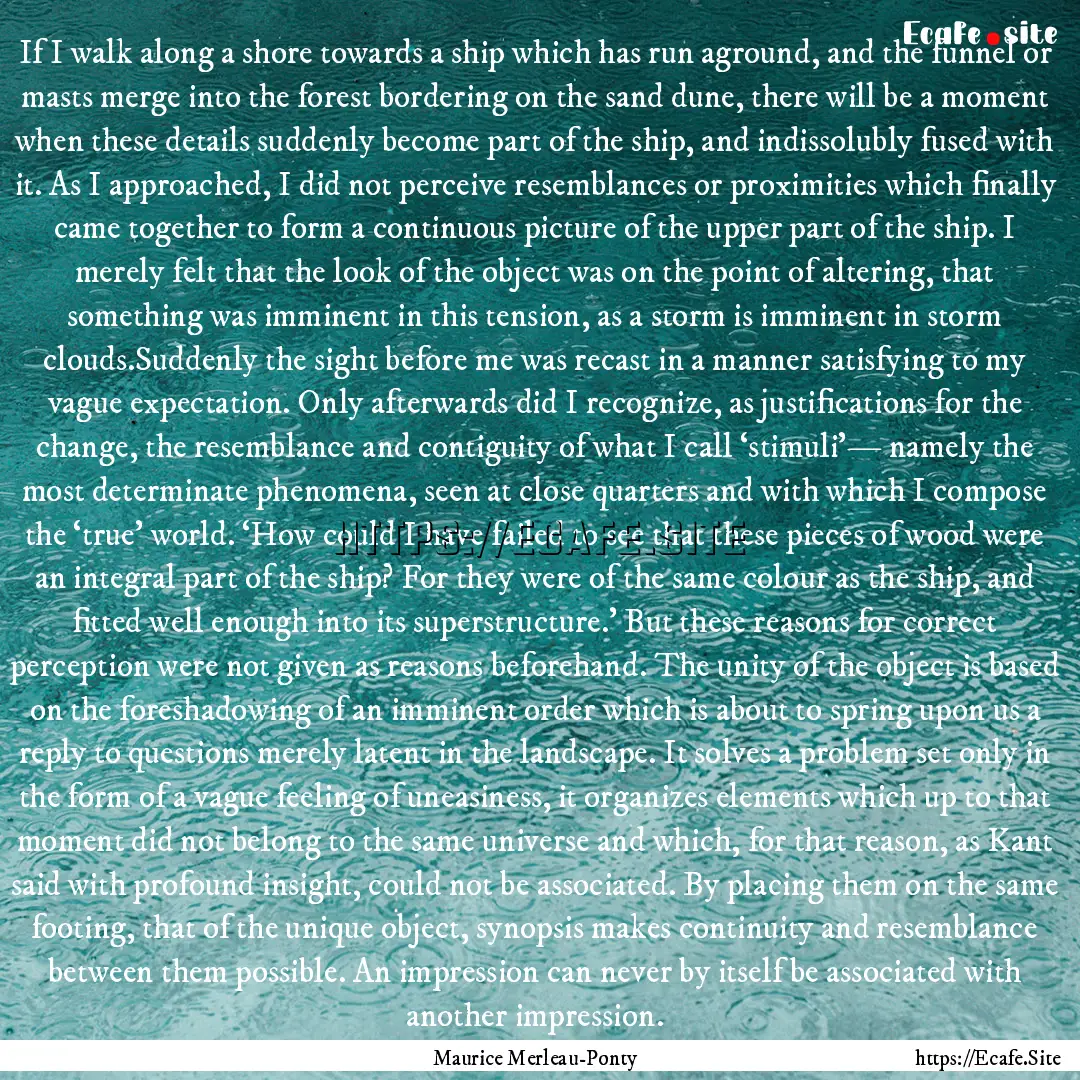
Report, if you have a problem with this page“ If I walk along a shore towards a ship which has run aground, and the funnel or masts merge into the forest bordering on the sand dune, there will be a moment when these details suddenly become part of the ship, and indissolubly fused with it. As I approached, I did not perceive resemblances or proximities which finally came together to form a continuous picture of the upper part of the ship. I merely felt that the look of the object was on the point of altering, that something was imminent in this tension, as a storm is imminent in storm clouds.Suddenly the sight before me was recast in a manner satisfying to my vague expectation. Only afterwards did I recognize, as justifications for the change, the resemblance and contiguity of what I call ‘stimuli’— namely the most determinate phenomena, seen at close quarters and with which I compose the ‘true’ world. ‘How could I have failed to see that these pieces of wood were an integral part of the ship? For they were of the same colour as the ship, and fitted well enough into its superstructure.’ But these reasons for correct perception were not given as reasons beforehand. The unity of the object is based on the foreshadowing of an imminent order which is about to spring upon us a reply to questions merely latent in the landscape. It solves a problem set only in the form of a vague feeling of uneasiness, it organizes elements which up to that moment did not belong to the same universe and which, for that reason, as Kant said with profound insight, could not be associated. By placing them on the same footing, that of the unique object, synopsis makes continuity and resemblance between them possible. An impression can never by itself be associated with another impression. ”

Maurice Merleau-Ponty
From : Phenomenology of Perception



